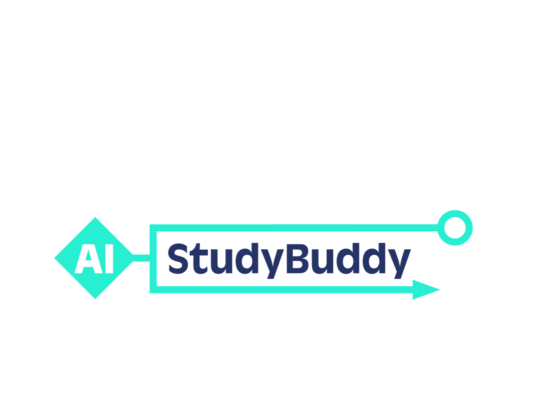Project Description AIStudyBuddy
The Project Idea - We want to meet the following needs!

Students differ more and more in their entry profiles, educational biographies and life situations. At the same time, the variety of courses on offer and the design options for degree courses provided by universities is increasing. The wide range of options, course combinations, study models, degree types and follow-up options is leading to increasingly diverse courses of study. As a result, the paths to graduation are becoming increasingly diverse, complex and difficult to understand for first-year students. In addition, almost 75% of students are in employment and almost half of them are unable to attend university at least one day a week (source: BUW, Uniservice QSL: EVA-Quest student survey 2019).
For these reasons, generic study plans are only suitable for mapping individual planning requirements to a limited extent. The same applies to the anecdotal knowledge of older students: their individual study paths are only transferable to others to a limited extent. Without reliable sources for planning their studies, students find it difficult to recognize unfavorable developments and make adjustments to their study plans accordingly.
At the same time, there is only limited evidence in the faculties about how students progress through their studies and which combinations and sequences of modules make sense. Ultimately, there is a lack of knowledge about how degree programs can be planned so that actual courses of study can once again follow generic progression plans to a greater extent.
The AIStudyBuddy - This is our solution!

In order to provide study monitoring, course planning and curriculum design with high-quality, individualized planning support, both the formal rules laid down in examination regulations and study schedules and the informal rules of study, such as favorable combinations and sequences, must be considered simultaneously. A hybrid approach of process mining and rule-based AI is ideal for meeting all these requirements.
With process mining, the actual study behavior of students can be discovered and analyzed from the process and progress data recorded in the campus management systems, learning management systems and (if available) examination systems. Actual study behavior can differ greatly from ideal study plans, e.g. because students take modules in a different order due to postponed exams or because failure to pass delays their progress. With the help of process discovery , real study progressions can be compared with the intended ones and deviations can be identified.
The results of the AI analysis are delivered to two front ends: StudyBuddy, which uses the results to support students in planning and reflecting on their course of study, and BuddyAnalytics, which supports course designers in making planning decisions.
By graphically representing modules to be taken depending on the current progress of their studies, students receive concrete information and recommendations on available options, such as the selection of modules that can be taken, their dependencies (so-called "constraints" in the sense of AI) and formal requirements. You receive examples of how students with similar progression profiles and study situations behave in order to successfully complete their studies. In contrast to traditional planning, not only the current situation and the course registrations for the coming semester are taken into account, but individual, complete courses of study can be continuously adapted, justified and reflected upon. Students can explore the scope of possibilities by specifying the number of credits to be planned (e.g. due to part-time work), coordinating their plans with fellow students (critical peers) or including semesters abroad. By combining both AI technologies, StudyBuddy brings together different types of information:
- rules defined in the examination regulations and module handbook as to which courses can or must be chosen in order to get closer to graduation,
- the often only informal and anecdotal knowledge at the university about which modules and which combination and sequence of modules are sensible and promising, and
- references to appropriate support services.
This interaction enables high-quality individual planning support, which would not be possible in this automated way without the simultaneous consideration of both AI technologies.
BuddyAnalytics gives course designers the opportunity to develop evidence-based curricula. By tapping into student data from various higher education systems and StudyBuddy usage data, it is possible to examine real study courses and students' planning behavior. This makes it possible to uncover problems and discrepancies in intended courses of study and to suggest interventions.
